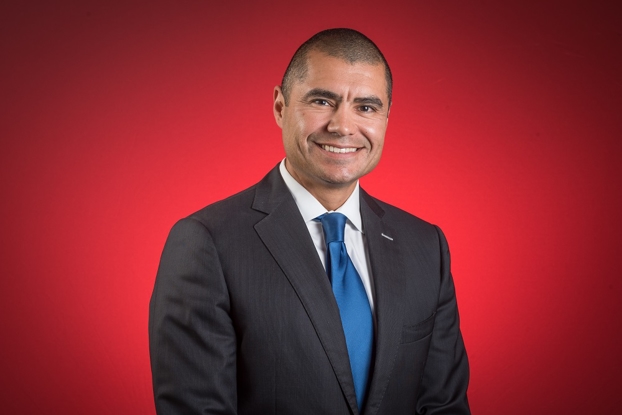Tackling Childhood Obesity Together: Tips for Parents
- Category: Living Well
- Posted on:
- Written By: Dr. Brandi Naccari

Childhood obesity is impacting more and more children across the country. The CDC reports that nearly one in five children ages 6 to 19 years old in the U.S. has obesity, according to data from 2015-2016.
“Most children become obese due to poor diet and nutrition, not enough physical activity, and other lifestyle choices such as excessive TV watching while snacking or eating too much fast or processed food,” says Dr. Naccari.
Obesity can have negative long-term effects on the health of children, even as they grow into adults. Research suggests that overweight or obese teens are more likely to remain overweight or obese as adults. Childhood obesity also brings higher risks of having other chronic health diseases and conditions, such as bone and joint problems, sleep apnea, asthma, and type 2 diabetes. Children with obesity are more likely to suffer from depression and low self-esteem, especially if they are bullied or teased.
Obesity is a buildup of body fat and is defined by body mass index (BMI), which is determined by measuring height and weight. In adults, obesity is defined by a BMI of 30 or higher. In children, BMI is entered into a chart that takes age and sex into account, very similar to height and weight growth charts. A BMI between the 5th and 85th percentiles is normal. Overweight is defined by a BMI between the 85th and 95th percentiles, and obesity is defined by a BMI greater than the 95th percentile. You can calculate your child’s BMI and percentile here.
If your child is overweight or has obesity, or you’re looking for tips to help your kids maintain a healthy weight, Dr. Naccari has some suggestions.
Ideas for parents to help kids manage their weight:
- Avoid using food as a reward for good behavior or accomplished tasks.
- Eat together as a family, at a table or counter, without distractions such as TV or cell phone.
- Only offer healthy food choices. Keep the refrigerator and pantry stocked with fruit and low-fat yogurt instead of cookies, chips or crackers.
- Offer healthy drinks such as water, sugar-free flavored waters and skim milk. Limit juice and soda to special occasions. When juice is offered, add water to it first.
- Focus on fruits and vegetables. Some kid-friendly snacks include fruit smoothies, raw veggies with yogurt dip or hummus, and celery or apples with peanut butter.
- If fresh produce is hard to find or too expensive, look for frozen options (with no sugar or salt added).
- Pay attention to portion sizes. Make sure your children’s food intake stays within the USDA recommendations for appropriate meal sizes for each food group.
- Involve the entire family in a healthy eating plan, not just the kids.
- Encourage activities that include exercises, such as walking, biking or skating.
- Aim for at least an hour of vigorous physical activity every day. Playing tag, jumping rope, swimming, riding bikes and scooters, playing basketball, hiking and walking are all fun aerobic activities.
- Be a role model by making exercise a part of your daily routine. Get moving with your kids! Enjoy taking a family walk, dancing, biking, or playing an outdoor game together.
- Reach out to your pediatrician or a nutritionist who specializes in children. Ask for help and guidance in managing your child’s weight in a safe and healthy way.
 By making some positive changes in your kids’ lives, you are setting them up for success and a healthy lifestyle now and later in life. Making new habits and choices are part of your commitment to the health of your family. I encourage you to make nutrition and exercise priorities for everyone in your family. It’s easier and more fun to tackle it together!
By making some positive changes in your kids’ lives, you are setting them up for success and a healthy lifestyle now and later in life. Making new habits and choices are part of your commitment to the health of your family. I encourage you to make nutrition and exercise priorities for everyone in your family. It’s easier and more fun to tackle it together!
Please make an appointment with one of our pediatricians for any questions or concerns you may have regarding your child’s weight or nutrition. Click here to find a doctor>>
 About Dr. Brandi Naccari
About Dr. Brandi Naccari
Dr. Brandi Naccari specializes in pediatrics at Pelican Pediatrics, a location of Children’s Pediatrics. After earning her medical degree from Louisiana State University School of Medicine in New Orleans, LA, Dr. Naccari completed her residency at Louisiana State University Health Sciences Center in New Orleans, LA. Dr. Naccari chose to practice pediatrics because she has always enjoyed working with children, and she believes there is something very special about being someone’s pediatrician. She loves having the opportunity to develop relationships with patients and families and to help children grow up happy and healthy.



